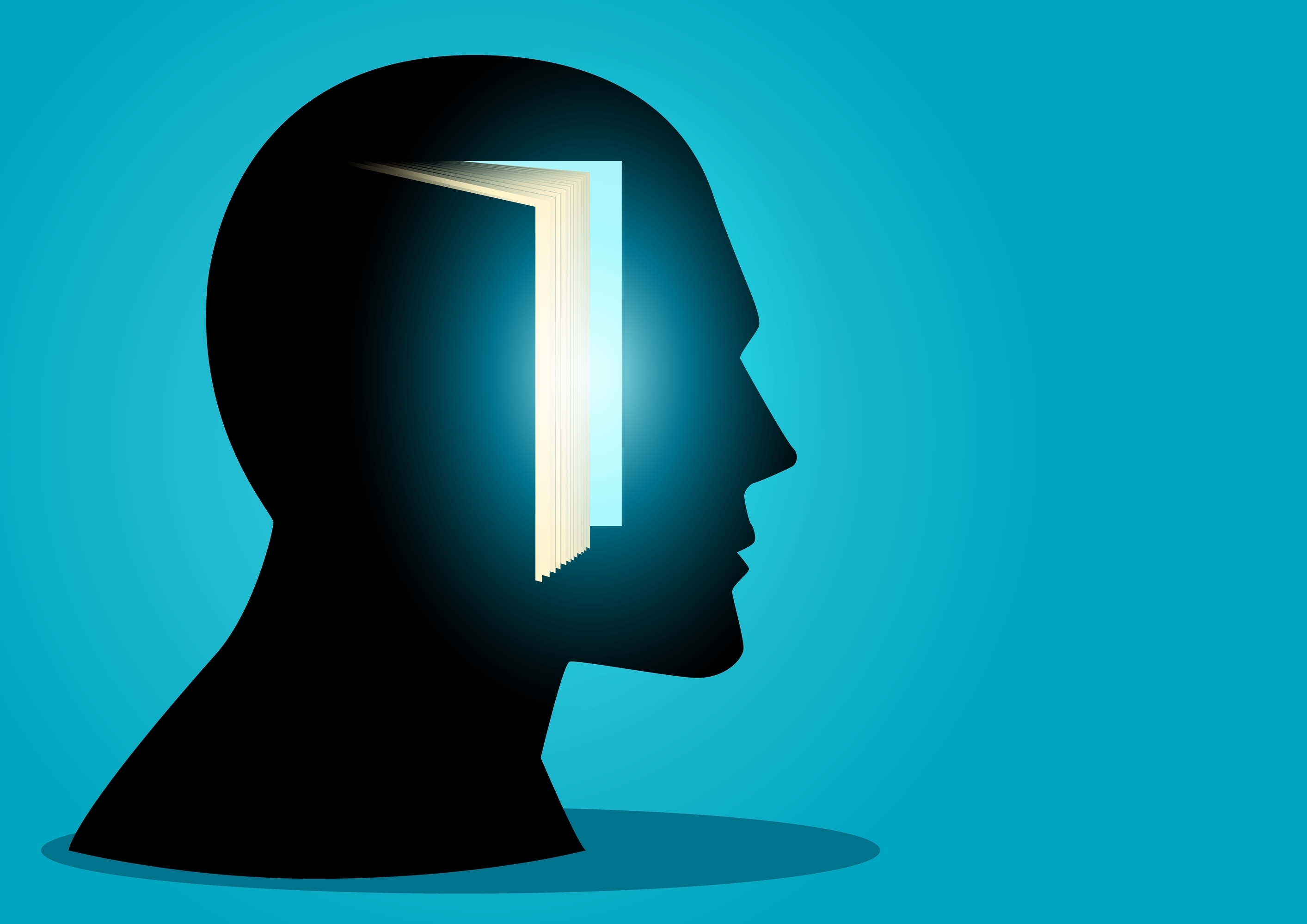There are different ways of not forming a belief or not knowing something, and they can have different epistemic statuses. Of course, you are not going to know everything. It is inevitable that any human is ignorant of uncountably many things. Most of the things that a person could know, you are never going to know in the course of a lifetime. We have to accept that; it cannot be a problem that people do not know all of these things that they could never know. On the other hand, sometimes it does seem epistemically problematic that you do not form certain beliefs. If you are in certain situations, it might be very puzzling that somebody you are with has failed to form certain beliefs. We need resources that can pull those two apart; that can allow us to describe in a more fine–grained way that negative space and the variations that occur within it; and why it is sometimes epistemically okay not to form beliefs — and why sometimes it is epistemically problematic not to form certain beliefs.
On ignorance and forgetting
Associate Professor in Philosophy
- Negative epistemology shows that the beliefs we never form and the evidence we ignore can be as significant as the beliefs we hold.
- Attention shapes knowledge, and sustained inattention to accessible evidence turns ignorance into an epistemic fault.
- Ignorance is permissible only when the missing information is either irrelevant or out of reach; neglecting obvious, important questions makes it illegitimate.
- Forgetting and structured ignorance actively manage cognitive load but can also reinforce social power by keeping certain knowledge unseen.
Negative epistemology
Epistemology has tended to focus on the belief states that we do form. It is well placed to ask questions like, is that belief state justified? Is it the output of a reliable process? Is it a portion to the evidence? Does it constitute knowledge, for instance? I am really interested, in addition to that, in all the things that our mind is not doing. I am interested in the beliefs that we are not forming, the evidence that we are not attending to or using, the belief states that perhaps we form. Maybe they are well grounded, they are well justified, but then we neglect them. We do not use them in reasoning. There are certain inferences, for instance, that we do not form. Epistemology to date is much less well able to evaluate that kind of negative state. What I think of as negative epistemology is the project of coming up with resources that let us say a bit more about that — because that negative space is not monochromatic, it is textured.
 © Shutterstock
© Shutterstock
Attention and ignorance
Attention plays an enormous role in what we end up knowing. Inattention then is absolutely crucial to making sense of ignorance, to drawing this dividing line between when ignorance seems okay and when it seems epistemically impermissible. Ignorance is epistemically problematic when it has this kind of robustness to it, when it is modally robust. Some of the time there are things I do not know, but if it became relevant for me to know that, it would not be difficult for me to form the relevant belief. I would find the books I needed, or the evidence from other sources that I needed in order to form the requisite belief. Or, for instance, maybe I have seen a car passing by. I have not formed a belief about what sort of a car it is, but if I were in a world in which that was relevant information for me to have, then I would have done so. That kind of ignorance is fragile in the sense that it does not take much of a push for me to acquire the relevant information, but some kinds of ignorance do not seem to be like that. They seem to be a bit more resilient. Even when you are presented with very clear evidence, you fail to form the relevant belief. Sometimes we criticize other people because they are like this. It can be frustrating if you have friends who are really forgetful or they are inattentive. You have to tell them things repeatedly. You get annoyed with them because they are not paying attention, and because they are not paying attention, they are not forming beliefs in ways that go on to seem epistemically criticizable.
 © Everett Collection via Shutterstock
© Everett Collection via Shutterstock
I think it is our dispositions to attend, which are often deciding whether or not ignorance is resilient. What is really curious is that sometimes our minds seem to almost slide over available evidence as though it were slippery in some way. We do not end up attending to it. That is driven by many different factors, by how we have been trained, what kinds of things we have been taught are important, by our own particular motivations. The result can be that we can live alongside quite large bodies of evidence and never really pay any attention to them, and I think that is a kind of ignorance which can be problematic.
The permissibility problem
I like to use this word permissibility because we are engaged in a project of trying to forge new epistemic resources. I like the term permissibility because it is quite loose. It allows for many different ways in which something might be impermissible.
 © Shutterstock
© Shutterstock
The permissibility problem is the problem of teasing apart when it is epistemically permissible not to know something, in the sense that we would not criticize an agent for not knowing it. Maybe criticism is not the thing that all epistemologists are most concerned with but rather when we might say it does not impugn somebody's epistemic standing that they failed to come to know something. Impermissible ignorance is cases where we feel like it is to somebody's discredit as an epistemic agent that they have not come to know something. The permissibility problem is the problem of distinguishing these two from one another, of explaining why we say that some cases are permissible and why some cases are impermissible.
Legitimate ignorance?
Sometimes I also use the term legitimate ignorance or illegitimate ignorance. Partly these terms are loose to allow people the space then to think about what does it mean for it to be illegitimate; what kinds of more precise forms of evaluation do we want to make here? Is the individual always blameworthy or criticizable, even if their ignorance is illegitimate? Perhaps, perhaps not. We maybe want to separate off the question of when we blame an individual and when their ignorance is illegitimate.
 © Shutterstock
© Shutterstock
In trying to answer the question of when ignorance is legitimate and when it is illegitimate, I think often intuitively that tracks the extent to which you have been exposed to a particular body of evidence. If you have had easy opportunity to learn something and you have not done so, that can seem illegitimate, but it is not always illegitimate. There is just so much you could be learning. If you were at a university, you have libraries absolutely crammed full of books, but there are several of them you are never going to read while you are there, inevitably. I think there is something else in play, which can make ignorance illegitimate. It is not just the ease with which evidence is available to you; it is also the intuitive importance or relevance of that information to you. These judgments are very complicated. Sometimes we are saying, well, given that you have this question, should you have attended to this evidence, and that would have led you to know something? Maybe you did not do that and that is why it is illegitimate. Other times, I think the thing we are really concerned to critique is why was this not a question for you? It is not just about evaluating the strategy that you adopted once you had a question but also trying to begin to criticize our practices of asking certain questions and not others, because that is absolutely crucial. It might be that you are doing an absolutely tip–top job of answering one small subset of questions, but you are illegitimately ignorant because you are neglecting another set of questions.
Norms on attention
I want to propose that there is a norm on attention. This is an optimal standard, a guiding norm that we might aim for but that we should not expect ourselves to satisfy at all times. There are two parts to this norm. The first part is that you should attend to information which is most relevant to the set of questions that you are concerned with at any given moment. We could deploy that norm relative to various different standards. We could, for instance, prioritize what is practically important, the questions which are most practically urgent for you. We could prioritize questions on the grounds that they have the biggest ethical ramifications. There is another way of doing this, which is also just to think about which questions are informationally most significant in the sense that they resolve the most indeterminacy for us; they improve our epistemic standing in the sense of resolving uncertainty as efficiently as possible. One thing we want in how we attend is that we should attend to relevant information. In a way, that is so basic it might almost seem boringly obvious, but I still think it is important. Often when you criticize what somebody is attending to, it is because it is not relevant to the question they are pursuing.
 © Shutterstock
© Shutterstock
If you think of a child or even an adult getting distracted in the course of trying to accomplish a particular task — they are staring out the window — staring out the window is not going to allow them to attend to information which is relevant to the particular task they have, and so we criticize that. There is a second really important aspect to the norm, which is that you should do so flexibly.
Attending to the unexpected
It is not enough that you can attend to information which is maximally relevant to just a tiny subset of questions. You need to be able to handle new questions, questions which come up unexpectedly. If you think of perhaps going to catch a bus, you might ask for information about how you get from A to B. Relevant information will tell you how to get from A to B, but you do not just want to be able to do that for one journey, because it might be that the next day you need to get to a different destination. If whoever is giving you the information is flexible in how they are doing that, they are going to be able to provide you with information about how you get to a whole range of destinations.
 © Shutterstock
© Shutterstock
I think how we attend is similar. We do not want to have attentional dispositions that only facilitate the accomplishment of certain tasks; we want them to allow us to attend flexibly for a whole range of tasks. One of the things that that will in turn allow us to do is to take on a range of tasks and to investigate a range of questions, and not just to focus on some small subset of them. It is those two things, flexibility and relevance, and often they can be in tension with one another. Attending to what is maximally relevant for one question is going to come at the cost of attending to other questions that you could be asking at a given time, for instance. We are always having to negotiate between those and balance them. I do not want to pretend that this is the kind of norm that will give you a definite answer about exactly what you should attend to at every given moment, because we are always balancing these competing priorities: the epistemic, the practical, the ethical, perhaps also the aesthetic.
Asking the right questions
We need to strike a balance between trying to find answers to certain questions and also on asking the right questions. That is absolutely crucial. When we switch our focus to thinking about what we should attend to, it gives us more resources to say we do not just want to answer questions, we also want to ask the right questions.
 © Vatican Museums
© Vatican Museums
Questions are really fundamental to shaping our mental lives, and we want to make sure that we are positioned to ask a broad range of questions. When you think about some of the ways in which, as a society, we have perhaps devalued certain groups, often that is happening because we are not asking a certain set of questions about them or about their experiences. We are just focusing on asking a set of questions which the status quo gives rise to. We are not stopping and asking background questions about why we have this particular status quo in the first place. I think you also see this in play in journalism. Any time that a newspaper is making a decision about what stories to put on the front page and what stories to put further back, they are making a decision about what information to prioritize and what information to deprioritize. More importantly than that, anytime they take up a particular angle on a story, they are making a set of decisions about which questions, even about that particular story, are most important. Which questions will the reader want to be resolved most efficiently and effectively? It is really crucial that we think critically about which questions we should be asking in any given context, as well as what makes a good answer to a question.
Forgetting is essential
Forgetting is absolutely fascinating because the more I have looked into it, the harder it becomes to give a unified account of all of the ways in which we use this term forgetting and the kinds of things that we use it to describe. One challenge for me as a philosopher is to try and figure out if there is something that draws that all together, that lets us give a unified account of the sorts of things we describe as forgetting. Often it is natural to think of forgetting as a negative state in two ways.
 © Shutterstock
© Shutterstock
It can seem like a negative state because it is primarily privative, that forgetting is a failure; it is when your mind has not performed in the way that you want it to. That in turn can mean that it is a negative state in a second way, which is it is normatively negative. It is a bad thing to forget. I think both of those are wrong. In saying that, I'm very much in line with work that's being done in neuroscience that investigates the ways in which forgetting is absolutely essential to the good functioning of the mind. There is also really interesting work in philosophy on the ways in which it can be ethically appropriate and good to forget, that you do not want to be trapped in a state of always remembering certain things.
Forgetting is also not a negative state in the sense that it is something the mind is doing actively. It's not just a passive failure to hang on to information. Forgetting is effectively de-prioritizing information. If you never forgot anything, you could not really learn new things, but you also could not attend to the things which are most relevant at a given moment. I think of forgetting primarily as rooted in access. I think you forget something when you cannot access it, but often, in fact most of the time, that is a transitory state. When you are put in a different context, you might be able to remember it, or given a bit of time something might come back to you. What we are trying to do when we give an account of forgetting is describe these kinds of access failures, if it is right even to call them failures, and what kinds of inability to access information count as forgetting and when they count as something else. For me, forgetting is then an attentional phenomenon. If you think of attention as this kind of prioritization of information, forgetting is the flip side of that. It is just that de–prioritization of information. It is that inability in the moment, or maybe not even inability but just the fact that you do not access certain information at a given time.
The limitations of our minds?
The mind is very surprising to me in two ways that seem incompatible with each other. One is it can do so much. It is kind of amazing, and it can do all these things without me even noticing that it is doing them. I can solve problems sometimes even when I am sleeping or when I am attending to something else. I also find it humbling and reassuring, curiously, to think about the limitations of our minds. We are such little creatures, cognitively struggling to integrate all of this information. Sometimes I look at other animals, like dogs, and I wonder what they can really understand of the nature of reality, what is their understanding of time and how that operates.
 © Shutterstock
© Shutterstock
Then I think that there must be possible creatures who would be so much more cognitively sophisticated than us that they would look at us and they would laugh and say, look at these funny little creatures with their limited understanding of four dimensions, and they are struggling to understand how all the other dimensions are wrapped up like a carpet. They would look at our attempts to solve certain problems, and for them their understanding of the nature of reality would be so much deeper than ours. I think that is a wonderfully reassuring thought in some sense, that ultimately our appreciation of reality just reflects this very peculiar human brain that we have. There are all these mysteries of the universe that I do not know, and maybe we will never really be able to understand.
Misconceptions about ignorance
If there is one misconception about ignorance that I would like people to rethink, it is that it is passive or accidental rather than, sometimes at least, having a robust muscular form that serves vested interests we have in not knowing certain things or not thinking about the experience of certain groups. Ignorance is a really powerful social force both in how we think and what we come to know, and also in terms of how we act. We should pay really close attention to all the things we think we are accidentally not doing and ask whether we are engaging in practices which actively shape systematic patterns of ignorance.
Editor’s note: This article has been faithfully transcribed from the original interview filmed with the author, and carefully edited and proofread. Edit date: 2025
Discover more about
negative states of the mind
Munton, J. (2025). Priority and Prejudice: The Epistemology of Salience and Attention. Oxford University Press.
Munton, J. (2021). Prejudice as the misattribution of salience. Analytic Philosophy, 64(1), 1–19.
Munton, J. (2023). Lost in (Modal) Space: Demographic base–rate neglect in the service of modal knowledge. Proceedings of the Aristotelian Society, 123(1), 73–96. Oxford University Press
Munton, J. (2022). Answering machines: How to (epistemically) evaluate a search engine. Inquiry, 1–29.
Munton, J. (2017). The eye's mind: Perceptual process and epistemic norms. Philosophical Perspectives, 31(1), 317–347.